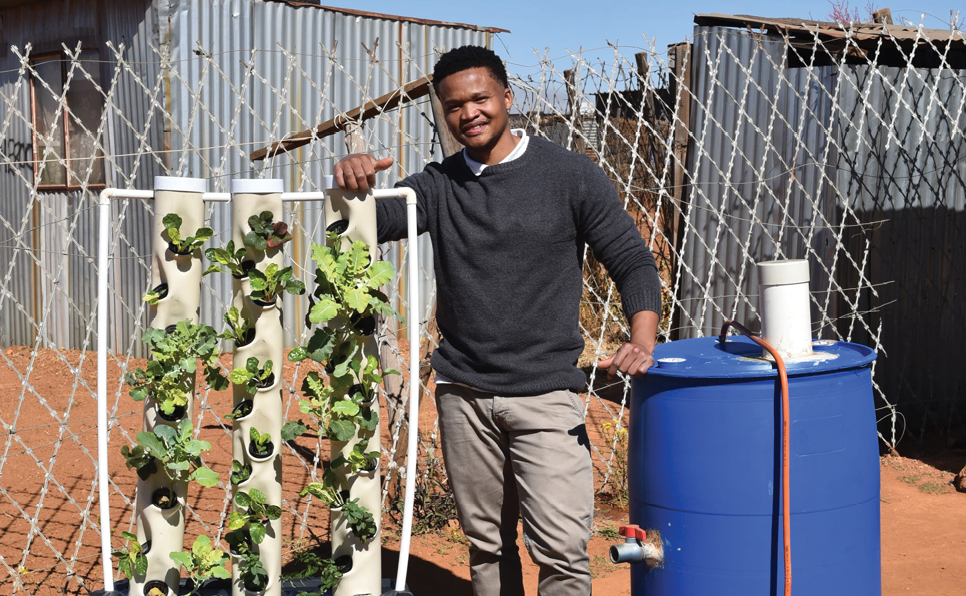Co-founded in 2022 by Iviwe Notununu and Mthembeni Dumisa, Archaea Eco is a trailblazing South African start-up tackling urgent challenges in clean energy, waste management and sustainable food production. At the heart of their innovation is a compact, integrated system that transforms everyday organic waste into clean biogas and nutrient-rich fertiliser, while also cultivating fresh produce through a smart vertical hydroponics setup.
Born and raised in Tsolo in the Eastern Cape, Notununu, a 30-year-old PhD candidate in microbiology at the University of the Witwatersrand, said the idea for Archaea Eco was born during South Africa’s peak load-shedding in 2022. “It was a personal experience in my case. I wanted an alternative solution. Solar was starting to boom back then, but it was too expensive for the average household and many people couldn’t afford it. I started to look at what other alternatives were available. I found that biodigesters were a solution.”
However, finding a biodigester that was both affordable and user-friendly proved challenging. “I saw a couple of projects run by government institutions and universities, but there was no one really selling them. On top of that, whoever was making them, it was too expensive and labour-intensive – they were basically failing.” Notununu and Dumisa saw an opportunity to innovate.
Their idea: a modular, affordable biodigester suitable for the average household. “We wanted to make one that would be affordable and small enough to meet a household’s cooking needs. An average household cooks a meal for approximately one to two hours on a daily basis.” Unlike conventional biodigesters, which are either unavailable or priced at around R20,000, the Archaea Eco system is expected to retail for around R6,000.

“It is very easy to install – it’s like plug-and-play. It will use organic waste; it can be anything – potato peels, leftover food, or butternut peels. If you have animals, you can use cow dung… and it will generate gas.” The by-product of this process is a nutrient-rich liquid that can be used as garden fertiliser, adding further value to the system. To maximise utility and sustainability, the duo also designed a vertical hydroponic garden that uses the fertiliser to grow up to 60 plants in just 2 m² – all while using 95% less water and no pesticides. With limited resources, Archaea Eco turned to the Technology Innovation Agency’s Grassroots Innovation Programme, which provided R260,000 in funding.
“The R260,000 was for the development of the prototype. We now have a working prototype that we are testing and we are now getting ready for a pilot project,” said Notununu. Additional support came from the SAB Foundation, which provided business development training and further funding.
For more information about the SAB Foundation, visit:
The Technology Innovation Agency can be reached at www.tia.org.za



 Facebook
Facebook Twitter
Twitter WhatsApp
WhatsApp